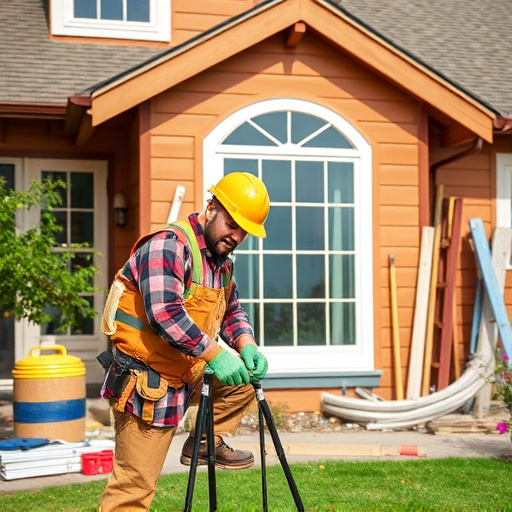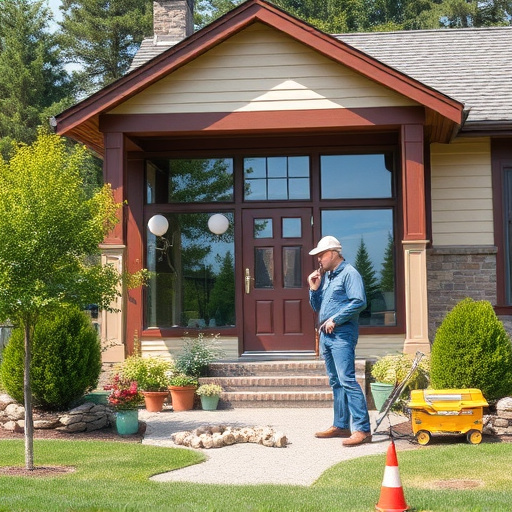Before a flooring remodel, separate and recycle floor waste like wood, tile, and carpet to reduce landfill waste and promote sustainability. Proper disposal methods are crucial for environmental protection and legal compliance, especially with hazardous materials like asbestos. Eco-friendly practices, reusing old flooring, and recycling support both your home and the environment; customized recycled flooring designs offer unique personalization for room remodels.
Renovating your space? A flooring remodel can transform your home, but proper waste disposal is crucial for a sustainable and safe process. This guide navigates the challenges of managing floor waste, offering practical strategies for a responsible renovation. From assessing materials to understanding local regulations and exploring eco-friendly alternatives, learn how to minimize impact and maximize recycling during your flooring overhaul.
- Assess Floor Waste: Separate, Sort, and Recycle Materials
- Safe Disposal Methods: Understand Local Regulations and Hazards
- Eco-Friendly Alternatives: Reuse, Donate, or Recycle Flooring Debris
Assess Floor Waste: Separate, Sort, and Recycle Materials

Before diving into a flooring remodel, it’s crucial to assess the floor waste generated from the process. This involves separating materials like wood, tile, carpet, and adhesives, ensuring proper sorting according to their composition. Recycling as much material as possible not only reduces landfill waste but also contributes to sustainability in the home renovation sector. Remember that even kitchen and bath renovations generate significant waste during a flooring remodel, making efficient sorting and recycling practices essential for responsible home renovation projects.
Proper separation allows for the reuse or repurposing of materials, which can be beneficial for both your budget and the environment. For instance, reclaimed wood from a kitchen remodel can find new life as flooring in another part of your home or even donated to a local craft project. By sorting waste meticulously, you open up possibilities for creative solutions that extend beyond traditional disposal methods in your flooring remodel efforts.
Safe Disposal Methods: Understand Local Regulations and Hazards

When planning a flooring remodel, safe disposal methods are essential to ensure both environmental protection and compliance with local regulations. Understanding the specific hazards associated with your project is crucial. Different materials used in flooring, such as vinyl, wood, or carpet, have varying disposal considerations. For instance, some areas have strict guidelines for disposing of hazardous substances like asbestos, often found in older flooring materials.
Additionally, local waste management facilities may have different rules and restrictions on what can be disposed of, especially when it comes to larger-scale renovations like bathroom transformations or home improvement projects. Proper research is key to avoiding legal issues and environmental harm. Many areas offer personalized services for customized work, ensuring that your flooring disposal and recycling needs are met responsibly.
Eco-Friendly Alternatives: Reuse, Donate, or Recycle Flooring Debris

When embarking on a flooring remodel, one key aspect to consider is minimizing waste and opting for eco-friendly alternatives. Instead of discarding old flooring materials, there are several sustainable options to explore. Reusing flooring debris can significantly reduce environmental impact. For instance, wood from previous floors can be refinished and installed in another area, extending its lifespan.
Donating or recycling is another effective strategy. Many organizations accept usable materials for repurpose or reuse, preventing them from ending up in landfills. This approach not only helps the environment but also supports local initiatives. In fact, eco-conscious homeowners can even consider customized work to create a unique, personalized design using recycled flooring, making it an ideal solution for multiple room remodels.
When undertaking a flooring remodel, proper waste disposal is key. By assessing floor waste, separating, sorting, and recycling materials, you can reduce environmental impact. Understanding local regulations and safe disposal methods ensures compliance while eco-friendly alternatives like reusing or donating materials further minimize waste. These steps not only benefit the environment but also contribute to a more sustainable and responsible flooring remodel.














